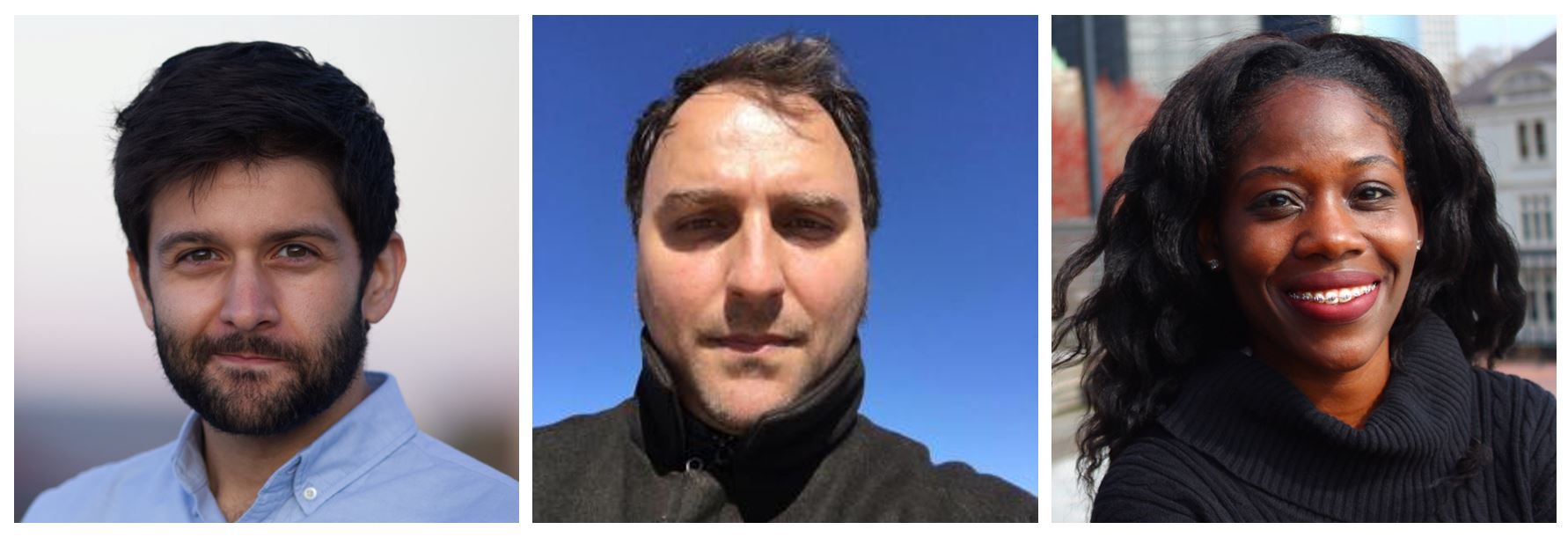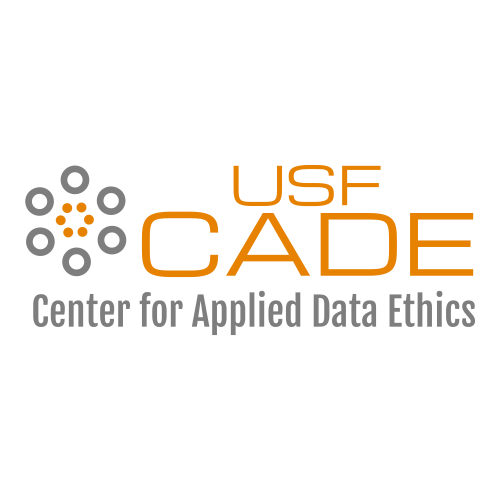The University of San Francisco is welcoming three Data Ethics research fellows (one started in January, and the other two are beginning this month) for year-long, full-time fellowships. We are so excited to have them join our community. They bring expertise in an interdisciplinary range of fields, inlcuding bioethics, public policy, anthropology, computer science, data privacy, and political philosophy. We had many fantastic applicants for the program, and we wish we had been able to offer a larger number of fellowships. We hope to be able to expand this program in the future. Without further ado, here is our first cohort of data ethics research fellows: Ali Alkhatib, Razvan Amironesei, and Nana Young.

Ali Alkhatib
Ali Alkhatib is a social computing researcher trained in Computer Science and Anthropology. His research explores how people relate to artificial intelligence and technology broadly, and attempts to situate those relationships in historical backdrops and ontological foundations using scholarship from the social sciences.
His paper Street-Level Algorithms: A Theory at the Gaps Between Policy and Decisions won the best paper award in 2019 at CHI Conference on Human Factors in Computing Systems, the premier international conference of Human-Computer Interaction, and his paper Examining Crowd Work and Gig Work Through The Historical Lens of Piecework won honorable mention at CHI 2017. Ali wrote the powerful essay Anthropological/Artificial Intelligence & the HAI.
Ali studied Computer Science at Stanford for a few years while pursuing a PhD with Michael Bernstein as his advisor. He earned my B.A. in Anthropology & B.S. in Informatics, specializing in human-computer interaction, both from UC Irvine in 2014, with an honors thesis on the Culture of Quantified Self, working under Tom Boellstorff.
Razvan Amironesei
Razvan Amironesei, PhD, was most recently a visiting scholar in the Department of Philosophy at the University of California, San Diego, where he chairs a multicampus faculty research group on algorithms and politics. He conducts interdisciplinary research (1) on the genealogy of datasets in collaboration with Google researchers by showing the constitution of algorithmic bias and its relation to harm as a historical, ethical, and technical problem and (2) on specific issues related to privacy practices of data related to human rights and questions regarding cybersecurity in the tech sector.
Over his past 8 years with UCSD, Razvan has written and received three grants that he used to organize events on the political and ethical dimensions of algorithms at UC San Diego, UC Berkeley, and UCLA. His Ph.D. dissertation in philosophy was devoted to the relationship between biopower and the concept of life, where he engaged with a sociological and theoretical analysis of Human-computer interaction technologies, in particular the question of brain surveillance. In his MA, he worked on questions around surveillance and privacy via a historical analysis of disciplinary technologies. Razvan has previously taught many undergraduate and graduate level courses in political philosophy and ethics including: “Ethics and Healthcare,” “The Ethics of Human Cloning,” and “Politics, Power, Violence.”
Nana Young
Nana Young is a global health bioethicist with domestic and international experience conducting independent health disparities research in low- and middle-income settings. Her research interests include ethical implications of disruptive technology, cyberharms and vulnerable populations, algorithmic justice, and harnessing the power of artificial intelligence to drive ethical, sustainable development in low and middle-income countries.
Nana Young earned her MA in Bioethics & Science Policy at Duke University, with a thesis on “When Private Bodies Deliver Public Goods: Why the Expectation of Private Altruism to Substitute for State Public Good Delivery is a Desertion of Government Responsibility that Places the Poor at Heightened Risk.” While at Duke, she helped design a course on race, genomics, emerging technologies, and society. She earned a BA in sociology at Princeton, with a thesis on a “Qualitative Study of the Socio-Cultural Sources of Mental Illness Stigma in Ghana, West Africa.”
Previously, Nana worked on strategic initiatives at a non-profit to shape strategic engagement with industry, civil society, academic and government actors towards the promotion and implementation of policy and health systems solutions of pressing global health issues including NCDs, disease epidemics, climate change, tobacco control, mental health, maternal mortality, and more.
Please join me in welcoming these data ethics research fellows to the University of San Francisco Center for Applied Data Ethics!
